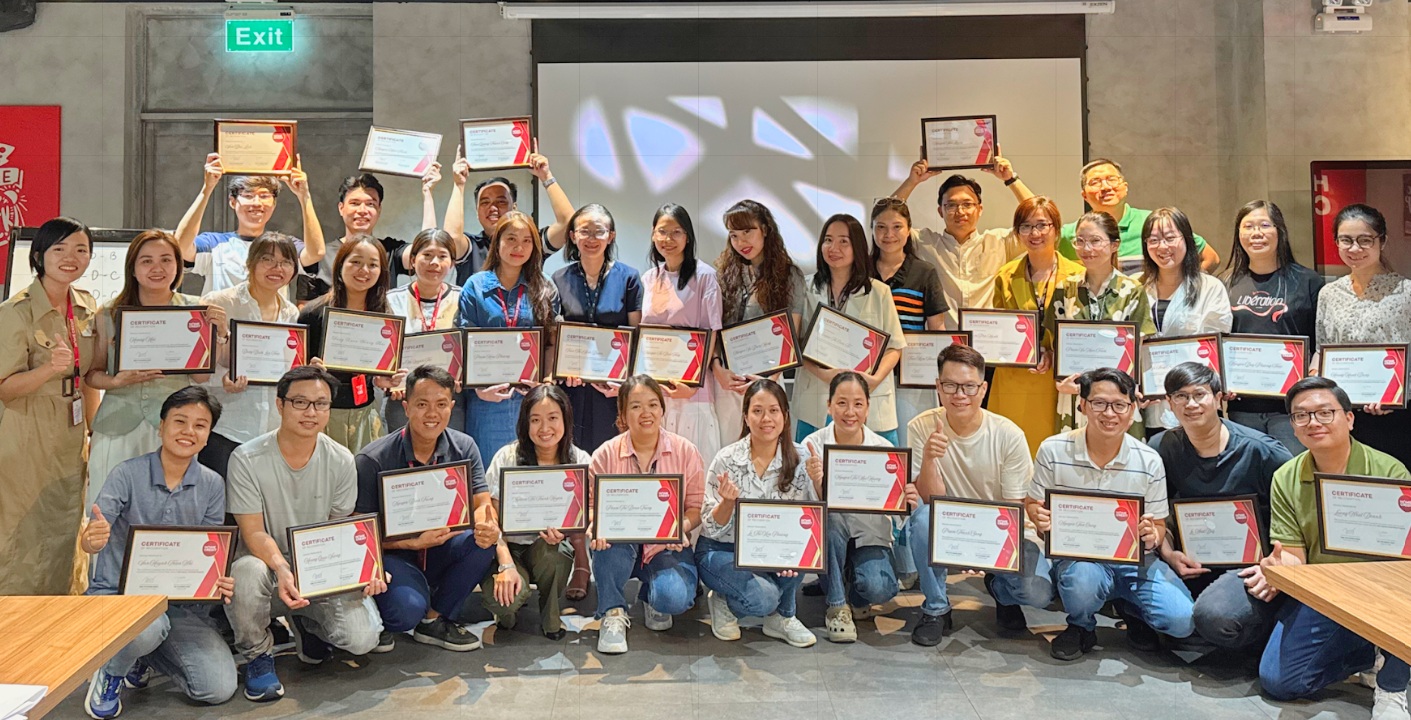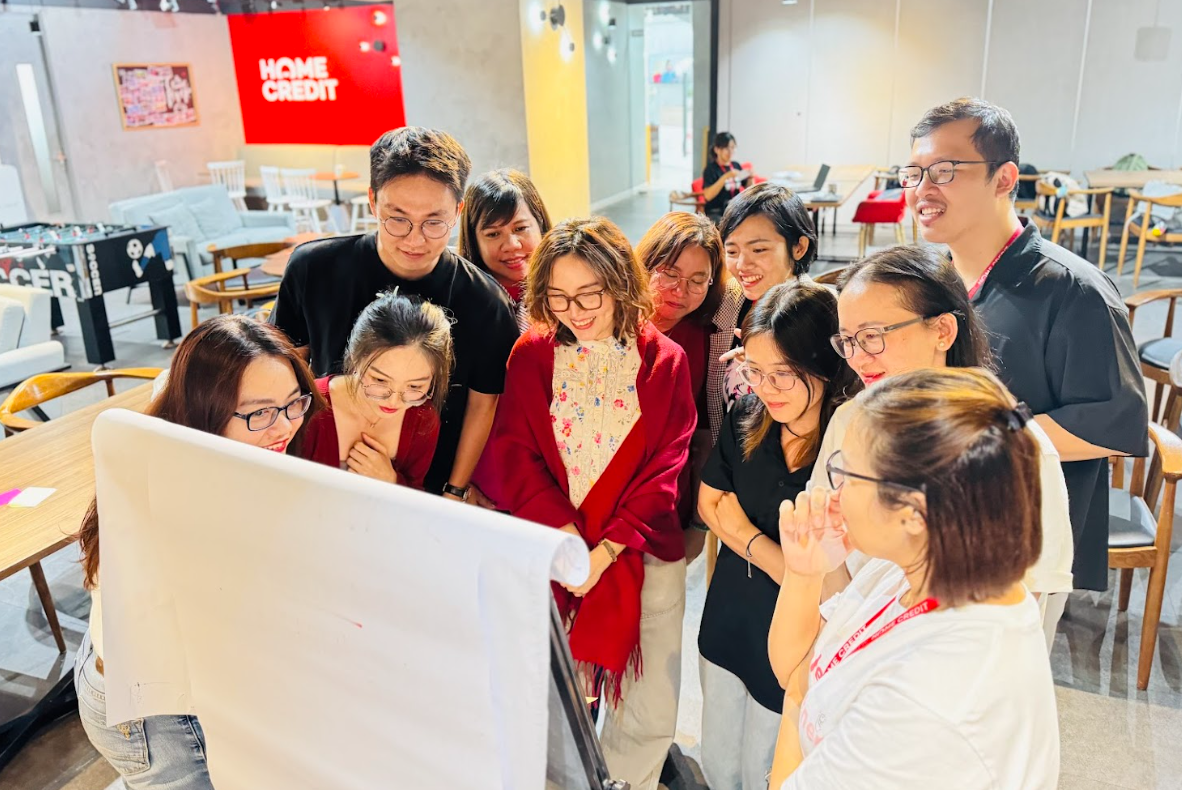At the Vietsuccess People Matter program, Van Thi Hong Hanh, Human Resources Director at Home Credit Vietnam, shared the company's journey of building and promoting a lifelong learning culture. This initiative encourages employees to enhance their knowledge and skills to adapt to the modern era.
 |
Van Thi Hong Hanh, Human Resources Director at Home Credit Vietnam (right), participates in Vietsuccess' People Matter program. Photo: Vietsuccess |
Van Thi Hong Hanh, Human Resources Director at Home Credit Vietnam (right), participates in Vietsuccess' People Matter program. Photo: Vietsuccess
With over 20 years of experience in human and cultural development, Hanh believes that a learning culture is fundamental for a company's longevity. "In this rapidly changing era, especially with the rise of AI and digital transformation, every organization must continuously learn and improve its capabilities. We need to learn not just to be better but to stay relevant," she said.
Home Credit Vietnam considers investing in its people an investment in its future. Hanh explained that Home Credit's learning culture is built on the foundation of "Mindset - Commitment - Action," with leadership playing a crucial role.
As role models for learning within the company, leaders regularly engage in training, mentoring, and coaching programs led by internal and external experts. These programs are tailored to the needs of specific groups.
This allows the CEO and the executive board to inspire learning and share experiences with the staff. It also prioritizes budget allocation for talent development and building a connected culture. This year, the company launched a series of design thinking workshops to promote teamwork, creativity, and collaborative problem-solving. From its application in one department in 2023 with third-party support, Home Credit has now trained over 20 internal experts and organized over 30 workshops.
 |
Home Credit’s New Leadership Development program for new managers. Photo: Home Credit |
Home Credit’s New Leadership Development program for new managers. Photo: Home Credit
To further promote a lifelong learning culture, Home Credit strives to diversify learning and development methods for its employees, "making learning engaging, convenient, and practically applicable." According to Hanh, the learning programs cover various topics, formats, and levels to meet learning needs anytime, anywhere.
Among these is the Home-Schooled Expert Series held every Thursday afternoon. Internal and external speakers share insights on various topics based on the learning needs of 6,500 employees nationwide, ranging from foundational knowledge and specialized skills to future-ready skills.
 |
Home Credit engages employees and creates a fun working environment through learning activities. Photo: Home Credit |
Home Credit engages employees and creates a fun working environment through learning activities. Photo: Home Credit
The company also provides online learning accounts on platforms like Udemy, Open English, and Docebo, empowering employees to proactively enhance their knowledge anytime, anywhere, and personalize their learning activities based on individual needs. Each department also has specialized courses to equip employees with the necessary knowledge and skills.
At Home Credit, learning primarily comes from practical work, requiring learners to immerse themselves in their tasks and explore solutions with guidance and support from managers. The company follows the 70-20-10 model, where 70% of learning comes from on-the-job experience, 20% from interaction and social relationships, and 10% from formal learning.
Home Credit Vietnam's Human Resources Director emphasizes that learning is not an individual pursuit but requires support from colleagues and teams. The company designs cross-departmental training programs in various formats, from traditional and online classes to cross-departmental workshops, mentoring programs, and experience-sharing sessions, fostering connections between departments.
Furthermore, Home Credit invests in digital transformation, researching, and applying artificial intelligence to encourage learning and optimize the employee experience. In addition to widely used online learning platforms, the company is experimenting with integrating Copilot and chatbots into its internal Teams communication platform. It has also initiated an AI mentoring tool project for the sales team to personalize learning and knowledge review activities.
To facilitate these activities, the company has a system to recognize and reward internal trainers based on teaching hours, positive feedback, and learner achievements in terms of learning hours. Hanh considers this crucial to encourage employees to dedicate time to self-development, share knowledge with colleagues, and transition from learners to inspirational figures, applying their knowledge to work and life.
 |
On 14/8, Home Credit was honored as "Best Workplace in Asia" for the 5th consecutive time. Photo: Home Credit |
On 14/8, Home Credit was honored as "Best Workplace in Asia" for the 5th consecutive time. Photo: Home Credit
Home Credit also encourages and facilitates internal transfers. The company personalizes development paths to increase employee engagement, especially in leadership and key personnel positions. The company also focuses on identifying and nurturing young talent, exemplified by the Home Racer Program, now in its 4th season.
According to a survey this year, Home Credit recorded an average satisfaction rate of 4.75/5 for its training courses. The company-wide eNPS (employee Net Promoter Score), measuring employee satisfaction, reached 80 points, with employee ratings for Growth and Leadership both reaching 94%. Employee retention rates have also improved annually.
Home Credit has been recognized as the "Best Workplace in Asia" at the HR Asia Award for five consecutive years, Hanh shared. "This motivates us to continue enhancing employee experience, strengthening our connected culture, fostering intergenerational collaboration, and building a future-ready organization."
Nhat Le












